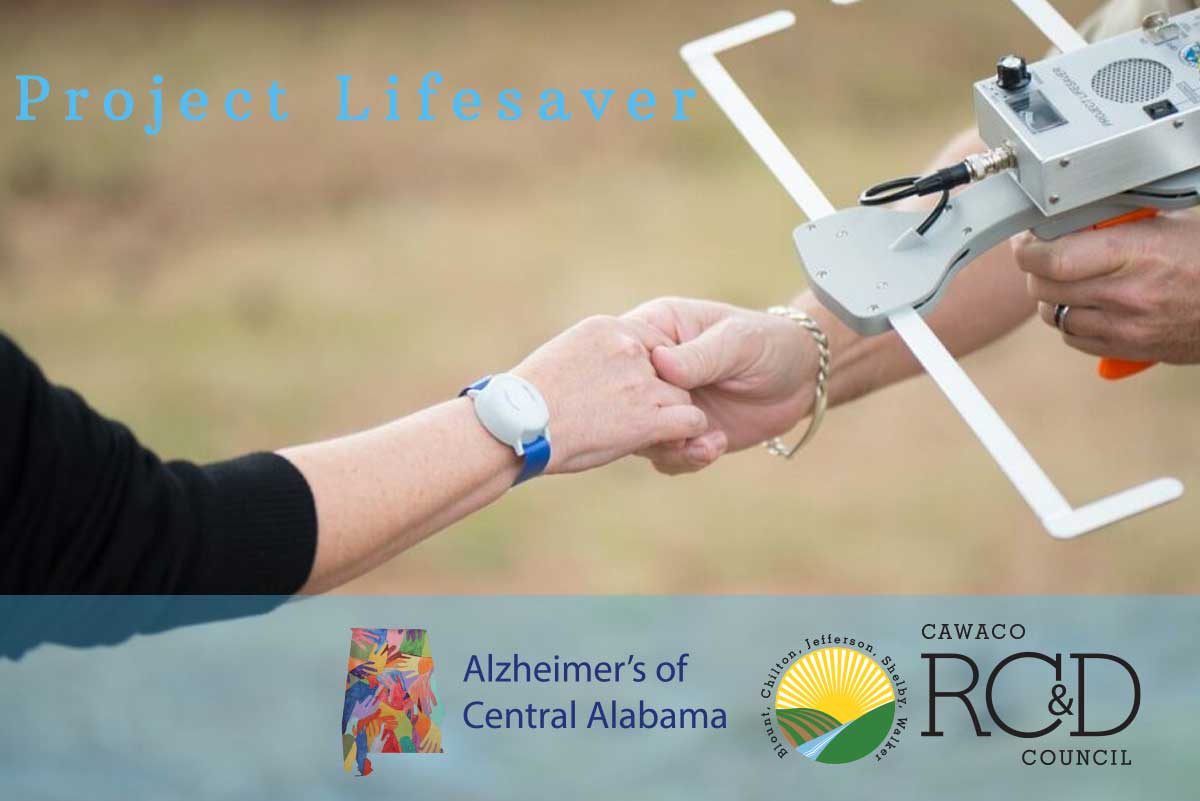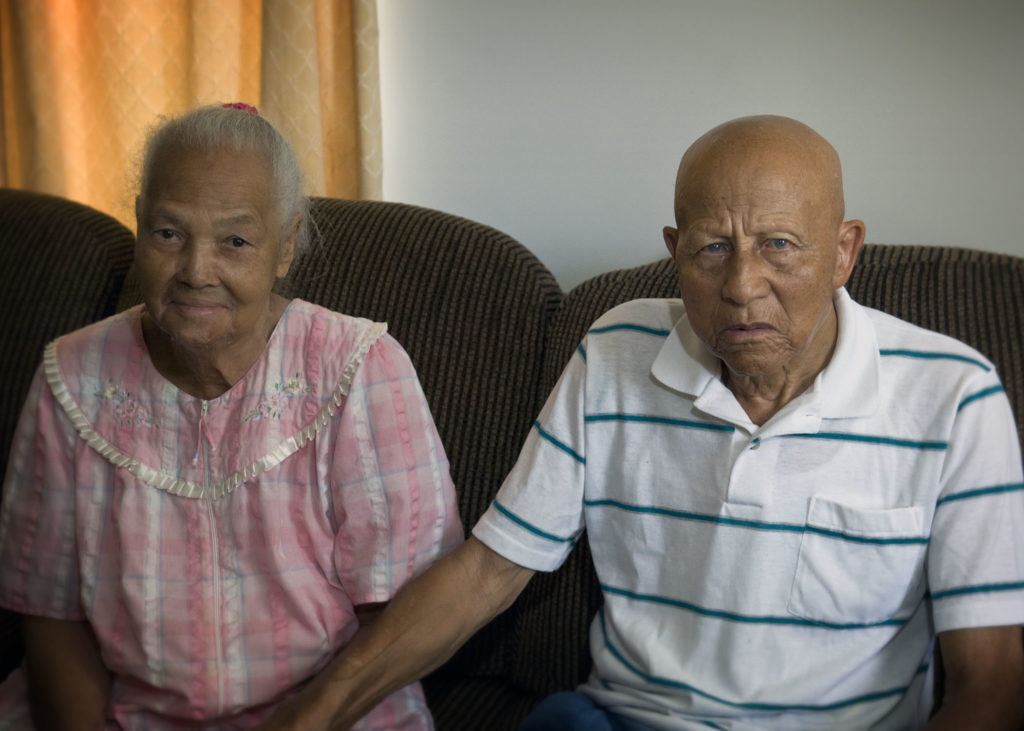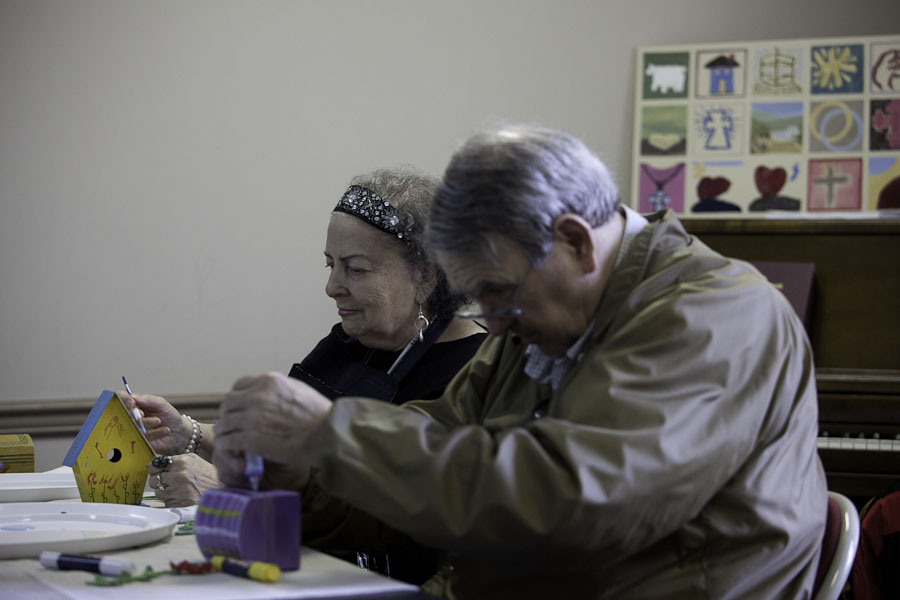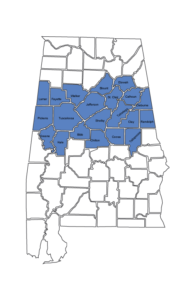Alzheimer’s and Dementia: A Family Disease
For every person living with Alzheimer’s there is an entire family that is affected. Although every family has a unique story, all families share in the struggle to provide the best care possible for their loved one.
In 1991, local family and support group members joined to create Alzheimer’s of Central Alabama (ACA) to promote research and provide services for local families living with dementia in its many forms. ACA helps families living with dementia who cannot afford the basics of good care: safety, respite, hygiene and nutrition.
ACA is a local organization and not affiliated with a national association. This means all of the money raised stays in Alabama to help Alabama families. Alabama has seen an 8% increase in the number of people with Alzheimer’s in the past decade. While research gives hope for the future, ACA’s services give actual help now.
The heart of what we do is helping families keep their loved one at home. Homecare isn’t always an option for many reasons including finances and the health and ability of the caregivers. ACA’s services give relief to specific challenges families face as their loved one progresses from needing supervision to custodial care to nursing care.
We serve Bibb, Blount, Calhoun, Cleburne, Clay, Coosa, Etowah, Fayette, Greene, Hale, Jefferson, Lamar, Pickens, Randolph, Shelby, St. Clair, Talladega, Tallapoosa, Tuscaloosa, and Walker counties.
Telephone Support and Helpline from Local Dementia Experts
Call or connect with ACA today. We can answer basic questions about the disease and help guide you to local community resources.
(205) 871-7970 or (866) 806-7255 (toll-free in Alabama)
In-Person and Zoom Support Groups for Family Caregivers
There are a variety of support groups offered throughout the community making it easier to find one that meets your needs. Reach out to connect with others on the same journey:
Tools to Reduce Boredom and Isolation
- ACA offers a weekly activity packet to help engage your loved one. Each packet contains 5 themed activities including a word game, jokes, and artwork. The packet can be downloaded for free. The activity packets were created by Founders Place, a respite program and ministry of St. Lukes’ Episcopal Church.
- ACA offers a robotic cat or dog (when available) to provide companionship. We have been amazed by the response. Watch a short video of Esther and her kitty or google Joy For All to learn more. These furry robotic pets respond in very lifelike ways and bring laughter and joy to the whole family.
Project Lifesaver Bracelets for People At Risk for Wandering
Sixty percent of people with dementia will wander and many do so repeatedly. Alzheimer’s of Central Alabama is working to reduce the dangers of wandering by providing Project Lifesaver bracelets that emit a radio tracking signal.

The nature of disease creates unique challenges to locating a wandering patient. They can easily become disoriented and can get lost in places that we would normally consider familiar, like their neighborhood or even their local Walmart. They may not hear and respond to attempts to call out to them. Patients are vulnerable and can succumb to the elements quickly. The bracelets have a 100% success rate in Alabama for safe returns.
Project Lifesaver Eligibility:
- Person with dementia must reside in the home with a caregiver who is on site with them at all times.
- Person with dementia should no longer be driving.
Where can I get a bracelet for my loved one:
- ACA provides bracelets for people with dementia in Jefferson County in partnership with the Jefferson County Sheriff’s Department.
- For outside of Jefferson County, please contact your local Sheriff’s Department to find out if they provide bracelets for their residents.
- The Alabama State Trooper Association provides bracelets. (334-265-2782)
What is the Cost:
The cost of the equipment is about a dollar per day for the first year. ACA will work with any Alabama family to provide a bracelet regardless of ability to pay.
Learn more about ways to reduce the risk of wandering here.
Scholarships to Attend an Adult Day Care Center
When a person with dementia should no longer be at home alone, the family begins the difficult task of piecing together 24-hour-a-day custodial care. Adult day care is the most affordable option of care for families whose loved one is physically able to attend.
ACA scholarships are for up to $300 a month. The family can select the center that best meets their loved one’s needs. Payments are made directly to the center.
Our annual survey of families on the program found:: 54% have monthly incomes less than $1,500; and 19% have monthly incomes that are less than $1000. 54% of the caregivers are daughters, providing care for their mother. Half have been providing care for 6 years or longer. 58% only get a break a couple of times a month and 70% said they are “on duty” 24 hours a day. Before the pandemic, only 11% rated their stress and health as fair or poor. That number has jumped to 46% during the pandemic.
People with dementia receive appropriate stimulation, helping them stay mentally and physically active. The caregivers can go to work, attend to household tasks, take care of their own health needs and get the renewing break that is so essential for caregivers of loved ones with long term care needs.
Who is eligible:
- People living with dementia who would benefit from a day of appropriate activities and fun.
- Awards are made based on greatest need, which includes financial need. Click to download an application or call (205) 871-7970 to receive an application by mail.
- Once an award is made, the family is asked to select the center that best meets their loved one’s needs
- Selected families are asked to call or contact the ACA office once a month.
- Caregivers are asked to reapply annually.
Scholarships for Continence Products
ACA provides a case of continence products delivered to the door each month saving families time and money. Products available include: choice of pull-ups or diapers; bed pads; gloves and wipes.
Until you are without something as basic as a clean diaper you cannot appreciate the hope a case of products delivered to your door can bring. 48% of the families on this program have monthly incomes of $1,000 or less and 74% have monthly incomes that are less than $1,500. 63% report not having enough income to meet their monthly expenses and 50% say paying their bills is what worries them most. For these families purchasing the continence products they need is a luxury instead of a medical necessity.
Who is eligible:
- People living with dementia who are incontinent.
- Awards are made based on greatest need, which includes financial need. Click to download an application or call (205) 871-7970 to receive an application by mail.
- The family is asked to call or contact the ACA office once a month..
- Caregivers are asked to reapply annually.
- People on hospice are not eligible for an ACA continence scholarship and should ask their hospice providers about receiving products.

Scholarships for the Nutritional Supplement Ensure
ACA provides a case of Ensure (24 cans) for people living with dementia who are at risk for losing weight.
Who is eligible:
- People living with dementia who are at risk for weight loss.
- Awards are made based on greatest need, which includes financial need. Click to download an application or call (205) 871-7970 to receive an application by mail.
- Once an award is made, the family is asked to call or contact the ACA office once a month to place their order.
- Caregivers are asked to reapply annually.
Weekly Email with Dementia News and Calendar
Every Friday ACA emails an update of Alzheimer’s in the news and a calendar of support groups, webinars and other helpful resource information. Click if you would like to subscribe or read our archived emails.




You must be logged in to post a comment.